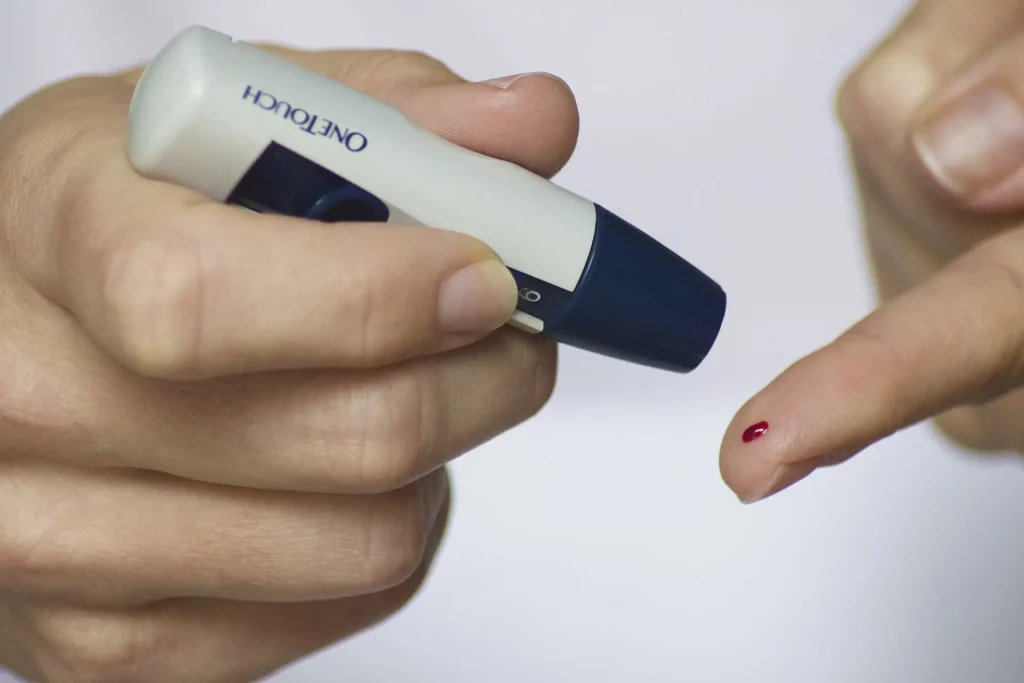Healthy Fats: How Much Can You Have Daily with Diabetes?

Fats are a crucial component of a balanced diet, especially for individuals managing diabetes. Understanding the four main types of fat—saturated, trans, monounsaturated, and polyunsaturated—is essential. The American Diabetes Association emphasizes the significance of preferring monounsaturated and polyunsaturated fats over their saturated and trans counterparts. This preference aligns with the latest findings, indicating that dietary cholesterol may have a lesser impact on blood cholesterol levels than previously thought, with saturated and trans fats being the primary culprits in elevating blood cholesterol.
With an emphasis on incorporating sources rich in healthy fats like fish, avocados, and salmon, and following dietary patterns such as the Mediterranean diet, which is laden with fiber, anti-inflammatory compounds, and antioxidants, this article navigates the daily fat intake recommendations for those with diabetes. It aims to elucidate the role of fat in diabetes management and differentiate between heart-healthy fats and harmful fats, providing practical tips for managing fat intake effectively.
Understanding the Types of Fat
Fats are an essential component of our diet, playing crucial roles such as energy storage, insulation, and supporting cell growth. However, not all fats are created equal, and understanding the differences is key, especially for individuals managing conditions like diabetes.
Monounsaturated Fats
Monounsaturated fats are beneficial to heart health and can be found in various foods and oils. Regular consumption of these fats helps improve blood cholesterol levels, potentially decreasing the risk of cardiovascular disease. Common sources include:
- Avocado
- Canola oil
- Nuts
- Olive oil
- Peanut butter
- Safflower oil
Polyunsaturated Fats
This category includes Omega-3 and Omega-6 fatty acids, known for their role in enhancing heart health. They help lower LDL cholesterol and are essential components of a balanced diet. These fats can be sourced from:
- Oily fish like salmon
- Walnuts
- Flaxseeds
- Canola oil
- Chia seeds
- Tofu
- Eggs
- Sunflower seeds
Saturated and Trans Fats
Saturated fats, found primarily in animal products and certain tropical oils, can increase cholesterol levels and the risk of heart disease. They are typically solid at room temperature. On the other hand, trans fats are even more harmful. Created by hydrogenating vegetable oils, they raise LDL (bad) cholesterol, lower HDL (good) cholesterol, and increase inflammation and insulin resistance. It’s advisable to limit these fats as much as possible. Key sources include:
- High-fat meats and dairy products (saturated fats)
- Foods containing partially hydrogenated vegetable oils (trans fats)
By choosing your fats wisely and focusing on healthy sources, you can manage your dietary fat intake effectively, which is particularly important for those with diabetes.
Daily Fat Intake Recommendations
When managing diabetes, it’s crucial to monitor fat intake carefully. Here are some guidelines on how much fat you should consume daily:
Saturated and Trans Fats
- Limit Saturated Fats: Both the American Heart Association and the Dietary Guidelines for Americans suggest keeping saturated fat intake to less than 7% and 10% of total daily calories, respectively.
- Avoid Trans Fats: Consume as little trans fat as possible. Check food labels for hydrogenated oils, a major source of trans fats.
Unsaturated Fats
- Increase Intake of Unsaturated Fats: Replace saturated and trans fats with healthier unsaturated fats. The American Diabetes Association emphasizes the importance of including more monounsaturated and polyunsaturated fats in your diet.
- Daily Fat Intake Guidelines: Adults should aim for 20% to 35% of their calorie intake from fats. For a 2,000-calorie diet, this equates to about 45 to 78 grams of total fat per day, with less than 22 grams from saturated fats.
These recommendations help in managing heart health and insulin resistance, crucial for individuals with diabetes.
The Role of Fat in Diabetes Management
Managing diabetes effectively involves not only monitoring carbohydrate intake but also understanding the impact of fats on blood sugar levels and overall health. Excess adiposity is a significant risk factor for type 2 diabetes, highlighting the intricate relationship between dietary fats and insulin sensitivity. The research underscores the importance of dietary adjustments, including the type of fats consumed, in managing or even preventing diabetes.
Impact of Different Fats on Insulin Sensitivity
- Unsaturated Fats: Replacing saturated and trans fats with unsaturated fats (both polyunsaturated and monounsaturated) can enhance insulin sensitivity. Foods rich in unsaturated fats, such as vegetable oils, nuts, and seeds, are recommended over high-fat meats and dairy products laden with saturated fats.
- Saturated and Trans Fats: These fats are detrimental, contributing to increased insulin resistance and a higher risk of type 2 diabetes. Limiting these fats is crucial, with a focus on avoiding foods containing partially hydrogenated oils.
Dietary Practices for Diabetes Management
Incorporating healthy fats into the diet is beneficial for managing diabetes. Monounsaturated and polyunsaturated fats not only support heart health but also aid in blood sugar management. Regular consumption of foods like avocados, fatty fish, and olive oil can improve insulin sensitivity and help regulate blood sugar levels. Moreover, these fats contribute to satiety, which can prevent overeating and assist in maintaining a healthy body weight.
Physical Activity and Dietary Balance
Alongside dietary management, physical activity is vital. Engaging in at least 30 minutes of moderate-intensity exercise most days significantly impacts blood glucose control and overall health. Balancing high-fiber, low-glycemic index carbohydrates with healthy fats and minimal saturated fats, sugar, and salt in meals can optimize blood glucose levels and prevent complications associated with diabetes.
Heart-Healthy Fats versus Harmful Fats
Understanding the distinction between heart-healthy fats and harmful fats is crucial for managing diabetes effectively. Saturated fats, primarily found in animal products and processed foods, are known to increase the levels of LDL cholesterol, often referred to as ‘bad’ cholesterol. This type of fat is solid at room temperature and includes items such as butter, cheese, and certain cuts of meat. Conversely, trans fats, which are typically present in processed foods and some takeaways, not only raise LDL cholesterol but also reduce the beneficial HDL cholesterol, exacerbating the risk factors associated with heart disease and diabetes.
In contrast, unsaturated fats, which include both monounsaturated and polyunsaturated fats, offer numerous health benefits, particularly for heart health. Monounsaturated fats, abundant in olive oil, avocados, and nuts, help to improve blood cholesterol levels. Polyunsaturated fats, found in vegetable oils and fatty fish like salmon, are rich in omega-3 fatty acids. These fats are essential for cardiovascular health and have been linked to a lower incidence of cardiovascular disease mortality among individuals with type 2 diabetes. Studies emphasize the importance of these fats not only in cardiovascular health but also in reducing overall mortality in diabetic patients.
To incorporate these beneficial fats into a diabetic diet, it is recommended to limit the intake of saturated and trans fats while increasing the consumption of foods rich in monounsaturated and polyunsaturated fats. Regular consumption of fish, particularly fatty varieties rich in omega-3s, and the use of oils like olive and canola in cooking can significantly enhance dietary fat quality. This strategic approach to dietary fat can aid in managing both diabetes and associated risks for heart disease.
Practical Tips for Managing Fat Intake
Managing fat intake efficiently is essential, especially for individuals with diabetes. Here are practical tips to help navigate through daily dietary choices:
1. Opt for Variety and Balance
Instead of fixating on specific types of fatty acids, it’s beneficial to focus on a varied diet. Incorporate a broad range of healthy foods such as vegetables, nuts, seeds, and fish. These foods not only provide good fats but also come packed with other essential nutrients that support overall health.
2. Understand Fat Types and Their Effects
All fats are not created equal. Monounsaturated and polyunsaturated fats, found in olive oil, nuts, and fatty fish like salmon, are beneficial for heart health and can help reduce bad cholesterol levels. On the other hand, saturated fats and trans fats, often found in processed foods and animal products, should be consumed sparingly as they can increase cholesterol levels and the risk of heart complications.
3. Smart Substitutions for Healthier Eating
Making simple substitutions in your diet can lead to better health outcomes. Use olive or canola oil instead of butter or lard; choose skinless poultry, fish, and lean meat cuts instead of high-fat meats; and opt for whole grains instead of refined products. Regularly check food labels to avoid trans fats, commonly listed as ‘partially hydrogenated oils,’ especially in baked goods and processed snacks.
By integrating these tips into your daily routine, you can manage your fat intake effectively, contributing positively to your diabetes management and overall well-being.
Conclusion
Through this comprehensive exploration, we’ve accentuated the paramount role fats play in a diabetes management regimen, distinguishing between the beneficial unsaturated fats and the detrimental effects of saturated and trans fats on heart health and insulin resistance. Emphasizing the incorporation of monounsaturated and polyunsaturated fats from sources such as avocados, fatty fish, and olive oil, the discussion underscored how a strategic approach to dietary fat intake can aid in effectively managing diabetes and enhancing overall health. This alignment with dietary guidelines underscores the feasibility of maintaining a balanced intake of healthy fats while mitigating the risks tied to cardiovascular disease and poor insulin sensitivity.
The pivotal takeaway from our discussion extends beyond the mere categorization of fats, urging an integrated lifestyle approach that includes balanced nutrition, physical activity, and informed dietary choices. By advocating for an increased intake of heart-healthy fats and offering practical tips for day-to-day dietary adjustments, this article provides a blueprint for individuals with diabetes to navigate their fat intake judiciously. It reinforces the idea that, when armed with the right knowledge and resources, managing diabetes through diet can not only be attainable but also conducive to a fuller, healthier life.
FAQs
- What is the recommended daily fat intake for individuals with diabetes? For someone consuming 2,000 calories daily, it is advised to consume between 45 to 78 grams of total fat, of which no more than 22 grams should be saturated fat. Further information on different types of fats can be found through resources provided by the American Diabetes Association.
- Is it safe for diabetics to follow a high-fat diet? A high-fat diet can result in excessive calorie intake, which may lead to weight gain. This increase in weight can negatively impact diabetes management and increase the risk of heart disease.
- Do healthy fats benefit blood sugar levels? Healthy fats are crucial in a diet for managing diabetes. Foods like non-starchy vegetables, whole grains, and healthy fats are beneficial as they can help stabilize insulin and blood sugar levels.
- Can individuals with Type 2 diabetes consume fats in their diet? Organizations such as Diabetes UK and the British Dietetic Association advise against diets high in saturated fats for those with Type 2 diabetes. Diets should be evidence-based and tailored to meet the specific needs of the individual to ensure effective management of the condition.


